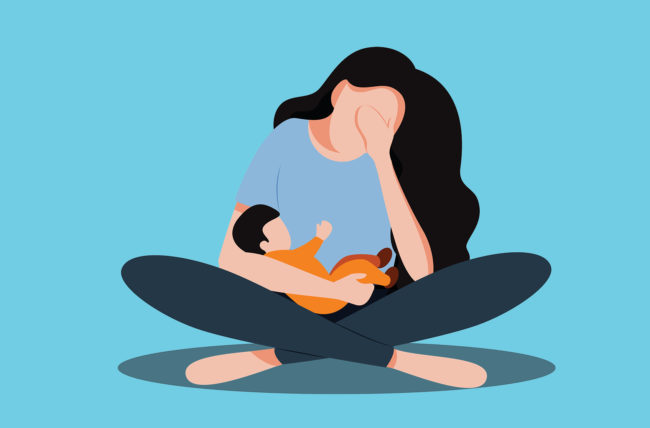Postpartum Complications And Warning Signs

Postpartum is a crucial time for every mother. You are at risk of many health conditions. At the same time, you have to take care of your baby as yourself. You can not afford to neglect any of them. Your and your baby’s health is equally important. It might be hard to look after yourself, especially when you have got that bundle of joy. But please take care of yourself because your body also needs your care, love, and attention.
During the postpartum period, various complications can occur. Some of them might resolve on their own, but some need urgent care as they can be life-threatening. From fever to heavy menstrual bleeding, you can have various complaints after childbirth. If you have any symptoms, you must visit the healthcare provider soon. To get an expert opinion, you can consult the best gynecologist in Islamabad.
The six weeks after delivery are a major recovery period for a mother. At that time, you can have perineal pain, body aches, heavy menstrual bleeding, and mood swings. You will get better over time, but you must give yourself ample time for it. During those days, you should keep an eye on yourself so that if there is any problem, it can be detected in the earlier days.
Also read: Jiorockers alternatives to download/watch films.
What Should You Note For?
Here in this article, we will tell you symptoms you should note yourself for. In the postpartum days, you will have lochia- either you deliver the baby through a cesarean section or vaginally. However, very heavy vaginal bleeding can be a serious condition. It can indicate postpartum hemorrhage, heart problems, or deep vein thrombosis- conditions that require urgent medical care.
You should contact your healthcare provider as soon as possible if you notice any of these signs:
- Very heavy vaginal bleeding, like soaking a pad in an hour or less and passing blood clots.
- Swelling and redness of the leg that is warm upon touch.
- A very bad headache that does not get better with medication or affects your vision.
- A fever of 100.4 degrees Fahrenheit or more.
- An incision that oozes pus and blood discharge and is not healing properly.
You should contact the emergency room if you have chest pain, seizures, or trouble breathing.
Risk Factors For Postpartum Complications
The risk factors for heart disease or peripartum cardiomyopathy are:
- Age over 40
- Being obese
- Having health conditions, such as gestational diabetes and high blood pressure, including high blood pressure problems related to pregnancy like preeclampsia
- Having a history of smoking
- Having obstructive sleep apnea
- Having a history of preterm delivery or a family history of heart disease
- Exposure to cardiotoxic drugs
The risk factors for postpartum hemorrhage are:
- Having pregnancy complications such as uterine inversion, uterine rupture, hydramnios, placenta previa, or placental abruption
- Having unrepaired vaginal or cervical lacerations
- Taking drugs or herbs that interfere with blood clotting, like aspirin, ibuprofen, ginkgo Biloba, or large doses of vitamin E
The risk factors for deep vein thrombosis are:
- Having a C-section
- Having postpartum hemorrhage, hemorrhage in the third trimester, or a blood transfusion
- Taking birth control pills (not progestin-only pills)
- Having a family or personal history of venous thromboembolism or having severe varicose veins
- Aged 35 or older
- Being overweight or obese
- Smoking
- Having preeclampsia, high blood pressure, inflammatory bowel disease, or other vascular diseases
- Being on strict bed rest
How To Prevent Postpartum Complications?
There is no exact way to prevent postpartum complications. However, to lower them, you can practice the following tips:
Be Proactive
Be vigilant about any changes you note or any symptoms you have. Plan visits with your gynecologist and keep in touch with them.
Attend Postpartum Visits
Many women do not find it useful to visit a gynecologist after delivering the baby. But they are essential and helpful for your health. Attend follow-up visits regularly with your healthcare provider.
The Bottom Line
Attending postpartum visits with the doctor is essential because they can check if you have developed any complications. Make sure to visit your healthcare provider on time and not miss any appointments. To get an expert opinion, you can consult a gynecologist doctor in Rawalpindi.
Read Also: For more information about this visit https://zeenews.co.uk/






